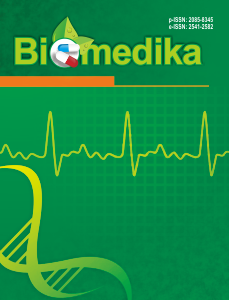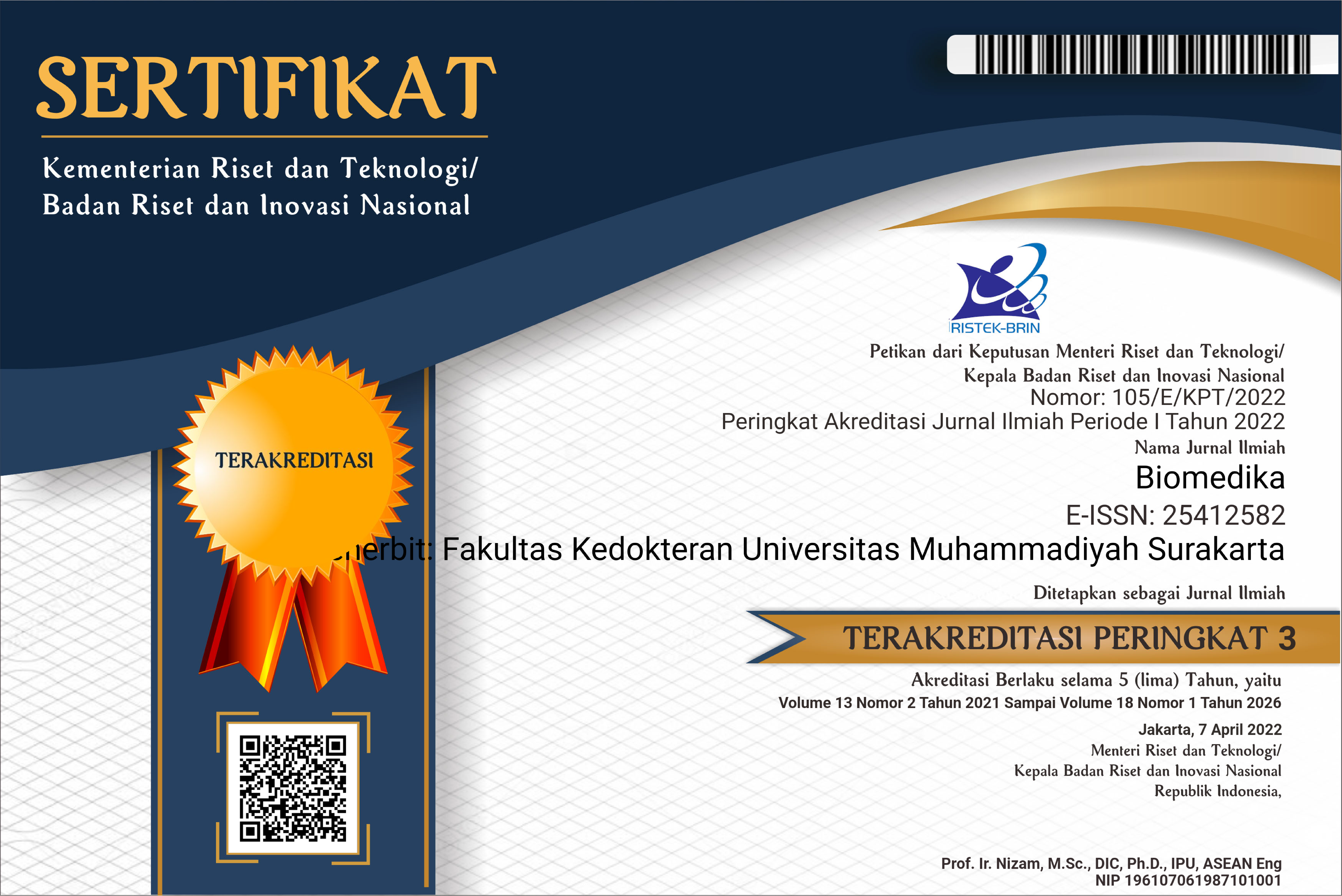External Validation of AI-powered GeNose C19 to Diagnose Volatile Organic Compounds in COVID-19 Patients Tested at Udayana University Academic Hospital
DOI:
https://doi.org/10.23917/biomedika.v16i2.3940Keywords:
COVID-19, GeNose C19, RT-PCR, External ValidationAbstract
In search for potential alternatives to RT-PCR, Gadjah Mada University developed GeNose C19 which was deemed to have high sensitivity, specificity, PPV, and NPV. The objective of this study is to contribute to the development of GeNose C19 by means of external validation conducted in Udayana University Academic Hospital, Bali. This was a cross-sectional study conducted on adults above 17 years old. Demographic variables, symptoms, vaccination status, GeNose C19 results, and RT-PCR results were measured. We analyzed the sensitivity, specificity, PPV, and NPV using respective appropriate formulas and the impact of other variables gathered towards accuracy by means of Chi-squared test, Mann-Whitney U test and independent-samples T test. The results showed that the subjects included in this study were 50.8% female and had a mean (IQR) age of 23.0 (21.0-27.5) years old. Only three subjects (2.5%) showed COVID-19-related symptoms such as cough (1.7%), flu (0.8%), fever (0.8%), and headache (0.8%). GeNose C19 yields a sensitivity of 83.1%, a specificity of 73.6%, PPV of 79.4%, and NPV of 78.0%. There were no variables that significantly affect the accuracy of GeNose C19. Further study is still required to validate GeNose C19’s performance in different environmental conditions and multiple different races.
Downloads
Downloads
Submitted
Accepted
Published
Issue
Section
License
Copyright (c) 2024 Biomedika

This work is licensed under a Creative Commons Attribution 4.0 International License.












